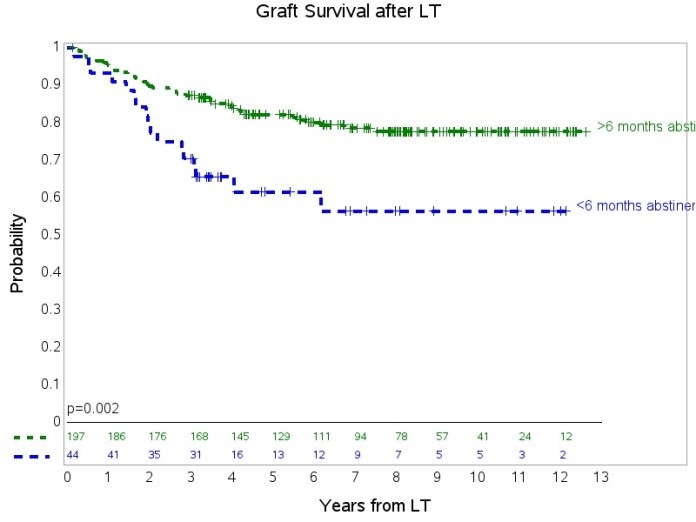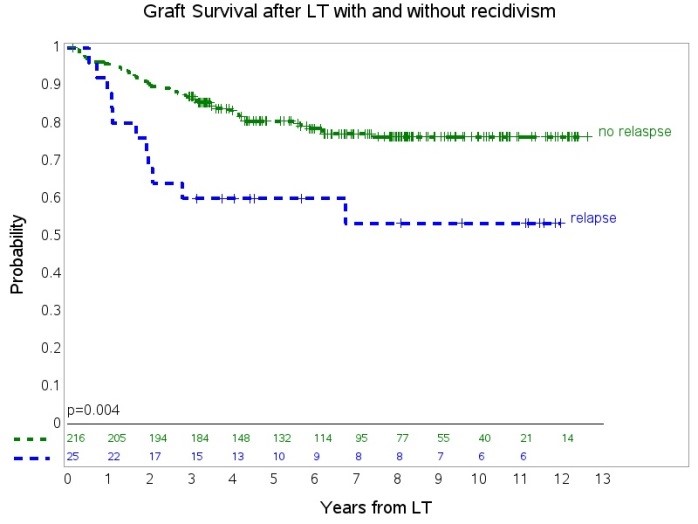Alcohol Recidivism In Liver Transplant Recipients With Alcoholic Liver Disease: Does Six-months Abstinence Rule Still Holds True?
S. K. Satapathy1, C. Thornburgh1, J. Yu2, J. Eason1, S. Kedia2, D. Maluf1
1UTHSC, Memphis, TN, 2University of Memphis, Memphis, TN
Meeting: 2019 American Transplant Congress
Abstract number: 186
Keywords: Alcohol, Liver transplantation, Outcome
Session Information
Session Name: Concurrent Session: Psychosocial and Treatment Adherence
Session Type: Concurrent Session
Date: Sunday, June 2, 2019
Session Time: 4:30pm-6:00pm
 Presentation Time: 5:42pm-5:54pm
Presentation Time: 5:42pm-5:54pm
Location: Room 208
*Purpose: Liver transplant for alcoholic liver disease (ALD) continues to be a challenge for transplant centers, particularly related to the ethical dilemma of transplanting or not patients with self induced liver disease and lack of abstinence. We sought to identify risk factors for recidivism and its impact on survival in liver transplant recipients due to ALD
*Methods: Demographic, clinical, social and psychosocial characteristics were retrieved from EMR and evaluated, especially associated towards harmful ALD recidivism from a total of 241 recipients of liver transplant with alcoholic liver disease between 2006 and 2014. Harmful recidivism was defined as alcohol consumption causing liver injury, cirrhosis or frequent readmissions
*Results: A total of 18-20% of patients with ALD have some type of recidivism. However, harmful recidivism was noted in 25 (10.4%) patients. On univariate analysis pre-transplant criminal history, duration of alcohol abstinence *Conclusions: Alcohol recidivism post transplantation was significantly associated with younger age, previous criminal history, and a trend for association with shorter or not pre LT alcohol abstinence (< 6 months). Pre transplant alcohol abstinence in ALD patients appear to hold significant value in optimizing post transplant outcomes.
To cite this abstract in AMA style:
Satapathy SK, Thornburgh C, Yu J, Eason J, Kedia S, Maluf D. Alcohol Recidivism In Liver Transplant Recipients With Alcoholic Liver Disease: Does Six-months Abstinence Rule Still Holds True? [abstract]. Am J Transplant. 2019; 19 (suppl 3). https://atcmeetingabstracts.com/abstract/alcohol-recidivism-in-liver-transplant-recipients-with-alcoholic-liver-disease-does-six-months-abstinence-rule-still-holds-true/. Accessed March 3, 2026.« Back to 2019 American Transplant Congress


